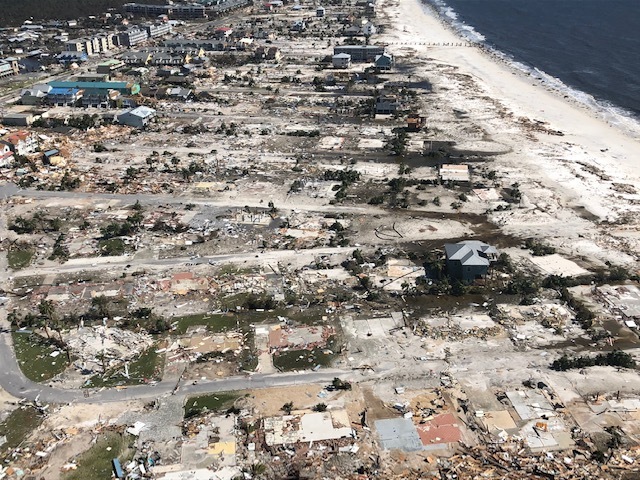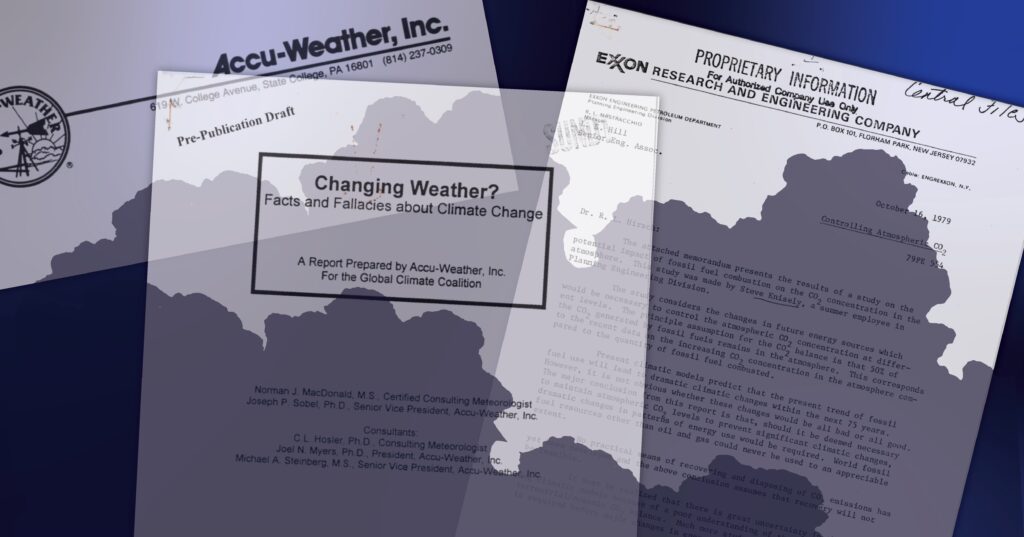As the midterm elections approach, DeSmog is taking this opportunity to highlight some of the top climate science deniers currently running for office in the U.S.
Did we miss someone notable? Let us know.
Rep. Clay Higgins (R-La)
Recently featured on DeSmog for some of his other extreme views, Rep. Clay Higgins of Louisiana’s Third Congressional District qualifies as a climate science denier on top of being a “warrior” for the natural gas industry.
Higgins told PBS News Hour in August 2017: “Climate change has always happened, that’s my argument, well before, you know, we had four-wheel drive trucks and boats and Suburbans rolling around or, you know, large industrial plants and whatnot.”
And the climate denier-in-chief Donald Trump, who recently made a similarly flawed argument on 60 Minutes, tweeted his support: “We want Clay!”
.@RepClayHiggins has been a great help to me on Cutting Taxes, creating great new healthcare programs at low cost, fighting for Border Security, our Military and are Vets. He is tough on Crime and has my full Endorsement. The Great State of Louisiana, we want Clay!
— Donald J. Trump (@realDonaldTrump) June 25, 2018
North Carolina’s Ninth Congressional District
North Carolina was recently devastated by Hurricane Florence, which has raised discussions of climate change in a historically skeptical state. The congressional seat in the Ninth District, which felt the impacts of Florence, is currently up for grabs after the Republican incumbent lost in the primary.
Running on the Republican side is Mark Harris, a conservative Baptist preacher and avid Trump supporter. While Harris has run for office before, he has not won.
In 2014 when asked if he believed in climate change, he simply said, “No.”
Running against Harris is Dan McCready, a Harvard Business School graduate and former marine who started a solar investment fund after graduating from Harvard. Polls show a tight race. Though both candidates were asked at a debate about their views on public education and climate change, neither directly answered the question.
This remains a close race as in two recent polls McCready led in one and Harris led in the other (although both were within the margin of error). McCready does have a major fundraising advantage over Harris for the last weeks of the campaign making this a competitive race in a district that was expected to be an easy win for Republicans.
And while the candidates aren’t talking about climate change, their future constituents increasingly are. As The Washington Post recently reported, the state’s extreme weather has been making believers out of former climate deniers. One Trump supporter reportedly said, “I always thought climate change was a bunch of nonsense, but now I really do think it is happening.”
Florida Governor Race
The race to be the next Governor of Florida will conclude long before the recovery from Hurricane Michael does. Notably, the current governor of Florida, Rick Scott, banned use of the phrase “climate change” in government communications.
The Republican candidate is Ron DeSantis, a three-term Congressman who recently resigned from Congress to run full-time for governor. DeSantis is a Trump favorite, with the President recently tweeting: “A great Congressman and top student at Harvard & Yale.”
In a recent debate DeSantis said he doesn’t “want to be an alarmist” — a favorite term of climate science deniers — when talking about climate change, despite commenting shortly after Hurricane Michael devastated the panhandle.
Democratic candidate Andrew Gillum got straight to the point, saying if he is elected, the people of Florida will “have a governor who believes in science, which we haven’t had for quite some time in this state.” He is also campaigning on cutting greenhouse gas emissions and shifting to renewable energy.
For a state battling climate-fueled sea level rise, hurricanes, and toxic algae, a belief in science in the state house would indeed be a novelty.
The co-owner of the only house on Mexico Beach that survived Hurricane Michael with barely any damage summed up the reality when speaking with DeSmog’s Julie Dermansky: “I’m tired of politicians lying to us. The American people need to understand they are lying. The people who are denying climate change are not telling the truth.” Incidentally, he’s a Republican.
Rep. Dana Rohrabacher (R-CA)
Rep. Rohrabacher is a longtime Congressman representing Orange County, California, who is known for climate denying statements such as, “I disagree with the theory that CO2, done by mankind, is a major cause for climate change.”
Despite his district’s typically conservative history (though Hillary Clinton beat Trump there by two points in 2016), Rohrabacher finds himself in a competitive race against Democrat Harley Rouda. Last week the Los Angeles Times reported that a national Super PAC closely aligned with House Speaker Paul Ryan stopped spending money on Rohrabacher’s race — a troubling sign for his campaign— but perhaps a positive one for the climate.
Texas Senate Race
Former Republican presidential candidate and incumbent Texas Senator Ted Cruz is well known for his climate denialism. Now facing a tough challenge from newcomer Beto O’Rourke, Cruz gave a classic non-response to a question about climate change in a recent debate.
“Of course, the climate is changing,” Cruz said. “The climate has been changing since the dawn of time.”
On the other hand, Cruz’s opponent O’Rourke was quite clear on his position on climate change at the debate: “The climate is changing. And man-made climate change is a fact.”
In a state that suffered $125 billion in damages from Hurricane Harvey — which broke rainfall records for a continental U.S. city — 70 percent of adults agree global warming is happening, though only 42 percent believe that it will harm them personally.
Pennsylvania Governor Race
After belittling as “a little young and naive” an 18-year-old constituent who asked him about climate change (and his campaign contributions from the fossil fuel industry), Pennsylvania Republican candidate for governor Scott Wagner said, “Are we here to elect a governor, or are we here to elect a scientist?”
In past comments, Wagner has used typical denier talking points when discussing climate change, saying: “I haven’t been in a science class in a long time, but the earth moves closer to the sun every year — you know the rotation of the earth. We’re moving closer to the sun.”
He went on to say: “We have more people. You know, humans have warm bodies. So is heat coming off? Things are changing, but I think we are, as a society, doing the best we can.”
In case you were wondering: No, human body heat is not causing climate change and neither is the position of the Earth to the sun. And no, climate scientists don’t think we’re doing the best we can.
Notable Mentions
In a debate for the open Senate seat in Arizona, Republican candidate Martha McSally responded to a question about climate change by saying, “I can’t believe this is the last question” and didn’t directly give an answer. Democratic candidate Kyrsten Sinema said, “I do believe that climate change is real.”
However, in response to a similar question by the Arizona Republic earlier this month, McSally, a representative who has frequently voted against the climate, acknowledged: “Our environment and the Earth’s climate are changing and there is likely a human element to it.” But she went on to call Obama’s signature climate change program, the Clean Power Plan, “crushing regulation” and failed to offer any specific approach to addressing climate change in Arizona.
Not exactly denial but not exactly embracing the scientific consensus either.
And while Sen. Marco Rubio (R-FL) isn’t up for reelection this year, he lost no time in the wake of Hurricane Michael’s devastation to unleash a string of climate denial talking points, including doubt that climate change is substantially caused by human activity.
When asked by CNN’s Jake Tapper what he would tell his children 20 years from now about what he did to help stop the impacts of climate change, Rubio didn’t have good news for the kids: “We’re going to have to do something … But I’m also not going to destroy our economy. There’s a reality here.”
Check out this video for more of Rubio’s views on climate change.
Climate Change and Electoral Politics
As the impacts of climate change become more severe, widespread, and frequent, expect climate change to play a bigger role in electoral politics (it certainly has plenty of room to grow).
For example, one of the few Republicans in the country who is outspoken in acknowledging climate change is Rep. Carlos Curbelo (R-FL) who represents southern Florida, including the Florida Keys. If nothing is done about sea level rise, much of his district may be underwater in a few decades.
Main image: Hurricane Michael overflight of Mexico Beach, Florida. Credit: U.S. Coast Guard, public domain
Subscribe to our newsletter
Stay up to date with DeSmog news and alerts






